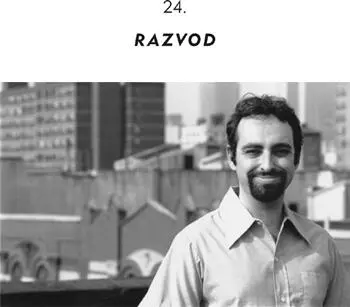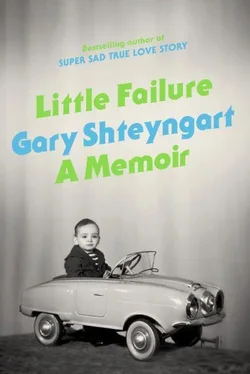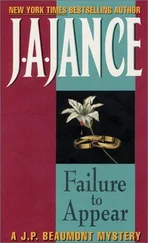Here’s what I do remember.
I am hitting the door. The tough Brooklyn door, probably wrought in the time of Walt Whitman, does not budge. Instead my hand turns red, then purple. I feel nothing. Maybe my hip is starting to ache some from being hit by the car on Atlantic.
Then I am inside, because someone (Pam?) has opened the door, and I am racing upstairs to confront my nemesis. The thing about Kevin is that he truly is very handsome. He has a real jaw, a serious nose, and tight clever eyes underneath a well-stocked brow. Immediately, I can tell that I am outclassed.
What happens in the next few seconds, minutes, or hours seems to be this: I scream and cry, something like “I can’t take it anymore, I can’t take it anymore! It is better not to live!” and Pammy screams and cries with me. Kevin, as far as I can remember, remains fairly immobile and unmoved. He says a few things here and there, perhaps along the lines of I’m sorry it has to be like this . But what’s truly amazing about this scene is that Pamela and I are essentially putting on a performance for Kevin. The two outsiders, one drunk out of his mind, the other depressed and eternally abandoned, are dancing and singing and weeping for Kevin, our God. I cannot fully choreograph Pamela’s dance, but I can surely remember the lyrics to my own. They are in Hebrew, of course, and I learned them in 1979 in a school in Queens.
Yamin, smol, smol, yamin , left, right, right, left, troo-loo-loo-loo .
Pamela guides me downstairs, my hand already throbbing to the point where my eyes are clouded in a different brand of tears. She goes no farther than the door I had hit with twenty-seven years of frustration, a door that she slams shut behind her. Angry, accusatory emails will stream in from her end by morning’s light. It would appear that by meeting Kevin I have broken the rules of the game.
And outside it is warm either in the fading way of fall or the rapturous, tenuous way of spring. And I am standing there holding my hand as a bearded, academic-looking man walks a set of Welsh corgis down State Street, a mirror of some earlier time and place — summer break, North Carolina — that should have pleased the early Nabokov so.

Three years later, Pamela Sanders is in a creative writing M.F.A. program at the University of Florida. One night, she sees her latest ex-boyfriend — a Ph.D. student in English, who, rumor has it, has done something terrible to her — sitting on the patio of the Market Street Pub & Brewery. When he gets up, Pamela follows him through the bar and into the restroom. She is carrying a carpenter’s hammer, its head wrapped in plastic. In the restroom, as he is taking a leak, Pamela hits the back of his head repeatedly with the claw end of the hammer. “I’m going to kill you!” Pamela is screaming, according to the arrest form. “You ruined my life!” He wrestles the hammer from her in the bathroom, and she runs out of the Market Street Pub, leaving her victim to stagger back into the bar. He suffers multiple lacerations and contusions to the head.
Pamela flees the state of Florida; she is charged with attempted murder. Eventually, she returns to Florida and turns herself in. The charges are reduced to aggravated battery with a deadly weapon and she is sentenced to a year in the county pen.

The first time I hear of the crime it is 2004, and I am at a writers’ conference in Prague, following the publication of my first novel. My beer-hoisting interlocutor tells me the tale with a smile, which may indicate that he knows of our past relationship. I can only imagine how quickly and gleefully a story like this must have spread through a college town. How quickly the term “Pamma Hamma Slamma” would be coined. Even before the attack, she was a mystery to many of her fellow writers and teachers, but several of the women in the creative writing program rallied behind her, one apparently going as far as to take her into her home, in Gainesville, after she was released on fourteen years’ probation. Some time later, she returned to New York City.
“That guy whose head she bashed in,” my drinking companion in Prague tells me, “he kind of looked like you! He had a beard!”
I am later told that Pam’s fiction was really coming into its own before the attack, something that does not surprise me, because she was always an exceptionally strong writer, if maybe a little too scared of the truth she was leaving behind on the page. But that kind of work requires a bravery different from the kind needed to bash a human being over the head with the claw end of a carpenter’s tool in a stinking subtropical bathroom, again and again and again.
*Not her name. Not her name at all.

The author posing for his first novel. What he will gain in readership, he will soon lose in hair.
A BOOK FULL OF DYSFUNCTION and hammer-armed assassins needs an adult in the room. Someone has to enter from stage left, way left, and tell our deluded hero, You can’t live like this anymore . Someone with two ounces of wisdom and at least as many of kindness needs to change our hero’s life. How romantic it would be if said person was a willowy American blonde or a sharp-tongued Brooklyn girl. Nothing doing here. We all know who it’s going to be.
But, oh, thank God there is someone . No, let me be emphatic: Thank God there is him.
When I graduate from Oberlin, John is at the center of my life and the center of my abuse. I hate him so much for being from a prosperous American family, for being older than me, for being generous to Maya, whom he’s installed in the first decent apartment of her life and who, thanks to his kind offices, no longer has to whip businessmen inside a Manhattan dungeon. And I hate the little muscle under his left eye, the one that twitches when we watch something sad at Lincoln Plaza Cinemas, the one that allows the sheen of liquid to coat the bottom lid, the one that shows that he is human and aware of the pain of others. That, more than anything else, is unforgivable to me and to my origins. So I respond by sabotaging his documentary, by offering him nothing but clownish songs and stupid accents whenever he flips on the camera. I want to punish John for trying to see beyond my goatee and spiteful tongue. I want to make him pay for his curiosity and his love.
But despite this hatred, I want his life, too. I pass by the Frank Stella shop on Columbus where John gets some of the shirts he wears effortlessly to places like Le Bernadin or a production of Mamet’s Oleana . To me, Frank Stella, this old-fashioned middle-class shop, looks like nothing less than a well-lit jewel box. Just the simplicity of it, the lack of pretension, the lack of Stuyvesant striving to be the best. If only my eye could twitch and cry. If only the silent coldness inside me could dissipate. If only my apartment had green silk curtains, a 1920s burgundy mohair couch, and a letter from Bette Davis thanking me for sending flowers when we stayed at the same hotel in Biarritz. If only I could drink a few glasses less each day.
When I come home after a day of paralegaling to discover the world’s biggest water bug flapping around my studio, I call John and beg him to come over and kill it. He won’t, but it’s a relief to be able to call him and tell him something no one else must know. That I’m scared.
Читать дальше














